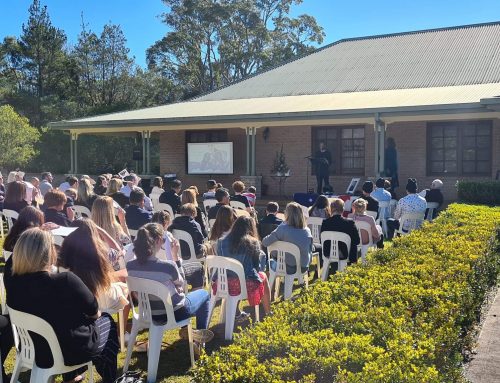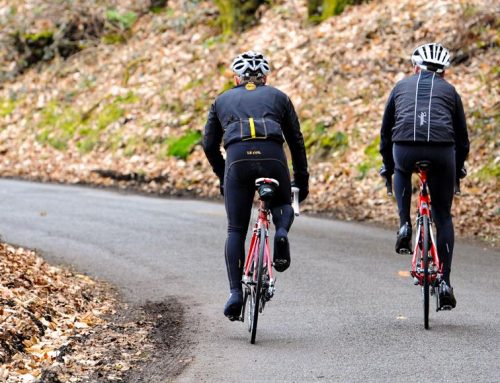Seniors on the Coast – August 2019
Tempting Fate? – Don’t Leave it too Late
 On August 8 every year it is Dying to Know Day, a national day of awareness initiated by the Groundswell Project to encourage conversations about death and dying and to make them natural, safe and easy. This is a much needed thing to do, I know. When I tell people my work includes end-of-life consulting, pastoral care, death education, holistic funeral celebrancy and funeral direction and planning, it can be a bit of a conversation killer.
On August 8 every year it is Dying to Know Day, a national day of awareness initiated by the Groundswell Project to encourage conversations about death and dying and to make them natural, safe and easy. This is a much needed thing to do, I know. When I tell people my work includes end-of-life consulting, pastoral care, death education, holistic funeral celebrancy and funeral direction and planning, it can be a bit of a conversation killer.
Yes I suppose I am one of those ‘weirdos’ who works with ‘death’. However, it is not morbid. Not morbid in the sense it is very natural and real and normal to die. We all will die. In my experience, it is, in fact, an intensely rich space of relationships, intimacy, meaning, love and even humour.
“But don’t you find it depressing and sad?” is what I frequently get asked. Well yes I do find it sad, but I am comfortable in that sadness. The sadness at death is legitimate and necessary. It honours the sacredness of a life ending.
What I do find depressing is perhaps not for some of the reasons you may think. As a professional in this space of care and ritual, what I find depressing is the lack of preparation and holistic support for families to guide them through this experience.
What I find depressing is the culture of death denial that inhibits doctors having real conversations with families; that sees unnecessary treatments causing distress and pain; and most distressing, is the unnecessary trauma and distress families experience after a death has occurred.
In particular, when the after-death care rituals are rushed and clumsily done, I am anguished. I know opportunities for healing, gentling into grief and intimate loving connection will be missed.
The soul needs more time than the brain to process a death. We think we have to act fast and dispose of the body quickly. Hospitals, nursing homes and funeral directors are notorious for rushing this process. We think we need to ‘get over’ the funeral quickly so we can grieve – or get back to life. However my experience suggests the complete opposite.
We need time. We need time with our beloved. We need a slower and gentler separation from the physical body. We need to slow things down. We need to be involved in each phase and be gently held and stepped through the process.
To do this however requires families having conversations. It needs families being willing to discuss their death and funeral plans and being supported to articulate their fears, needs and desires. This is still not the norm.
We should know better and do better. It is not such a stretch of practicality as70% of deaths are predicted and anticipated through illness, age and chronic disease, although when the time death arrives, most people are unprepared. This significantly amplifies distress, grief and trauma.
The other thing that troubles me in this work is the abyss of the aftermath. Not only are people unprepared for the physical, relational and spiritual aspects of dying, the practicalities of what needs to happen after a loved one/partner dies is often not often anticipated.
Being prepared does not put a ‘dark voodoo’ on your health, but rather it is a liberating act. It frees family from doubt and ensures peace of mind. It shows love. Most successful businesses have a disaster recovery plan. It does not mean it will bring disaster upon them. However, when it comes to our mortal life, we are in no doubt what is our fate. Don’t leave things too late.
Here is a basic checklist:
- Have a will. Let your family know where it is (give them an updated copy)
- Inside your will or in a safe/secure place list your passwords for computers, phones and even social media accounts.
- Consider arranging funds available in a joint savings account to cover at least 2-3 months living expenses as can take time or be delays to receive the death certificate and unlock assets and gain access to accounts.
- Prepare a list of your key financial institutions, accounts and legal providers – banks, super, insurance, trusts, accountants, lawyer, trustees etc
- Keep an updated phone/email list of the people most important to you (ie. Those you want at your funeral)
- Write your life story or history. Document your key life milestones and timeline events. Curate a selection your favourite photos, stories and music too.
- Consider a funeral plan and talk about what is important to you.
- Provide/share key documentation such as a Will and Advance Care Directive with next of kin.
- Who is your next of kin? Who do you want to be making key decisions for you after death?
- Discuss with your family your desires for your care, funeral etc
These things are practical and they make a huge difference. It doesn’t diminish the grief your loved ones will feel, but it won’t cause significant, debilitating and traumatic amplification of grief and stress.
When you deal with this business, it frees you up to deal with the most important things of all, being present, grateful, intimate and real with the business of relationships, family connection and love
Much love, Sarah





